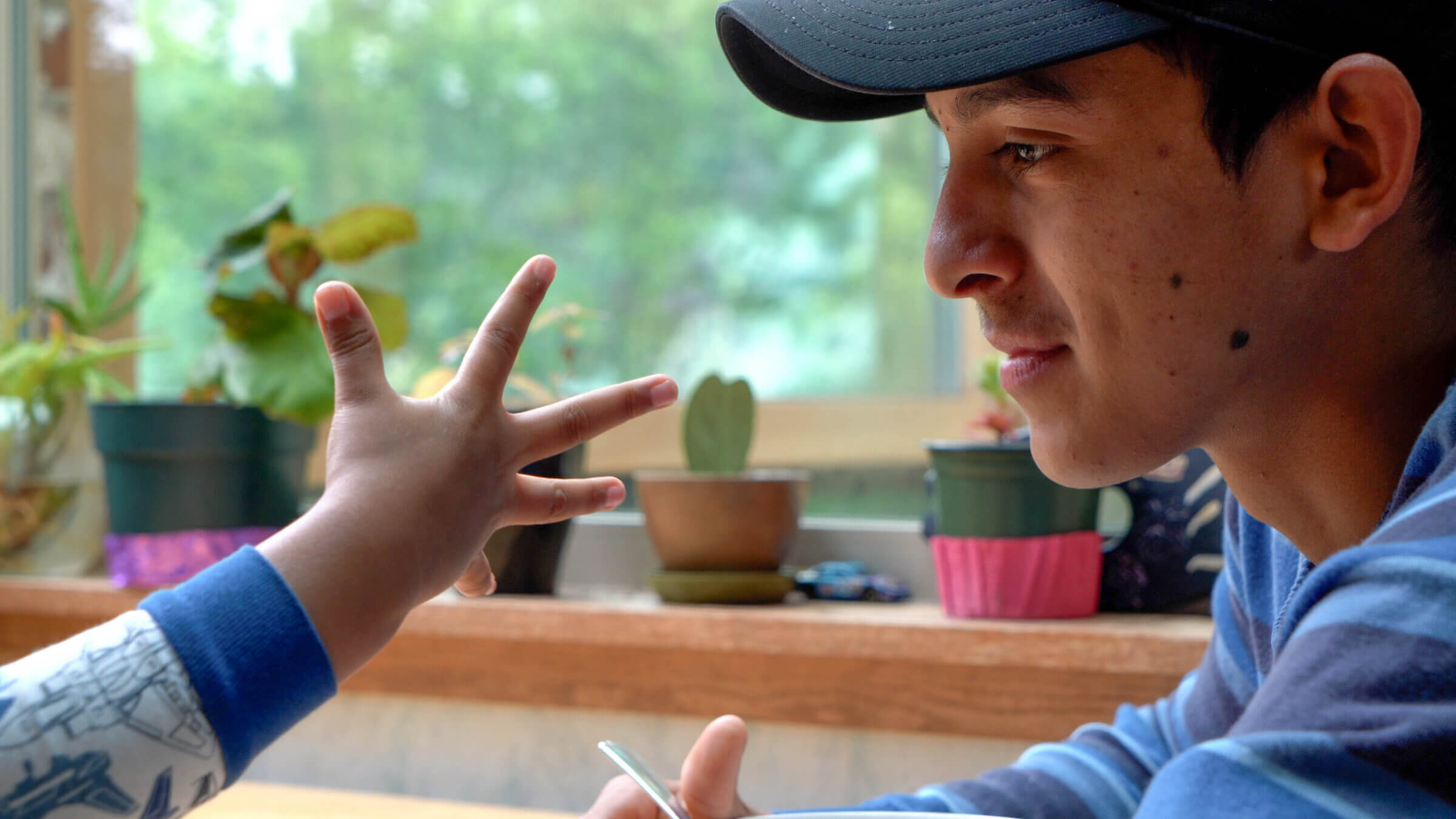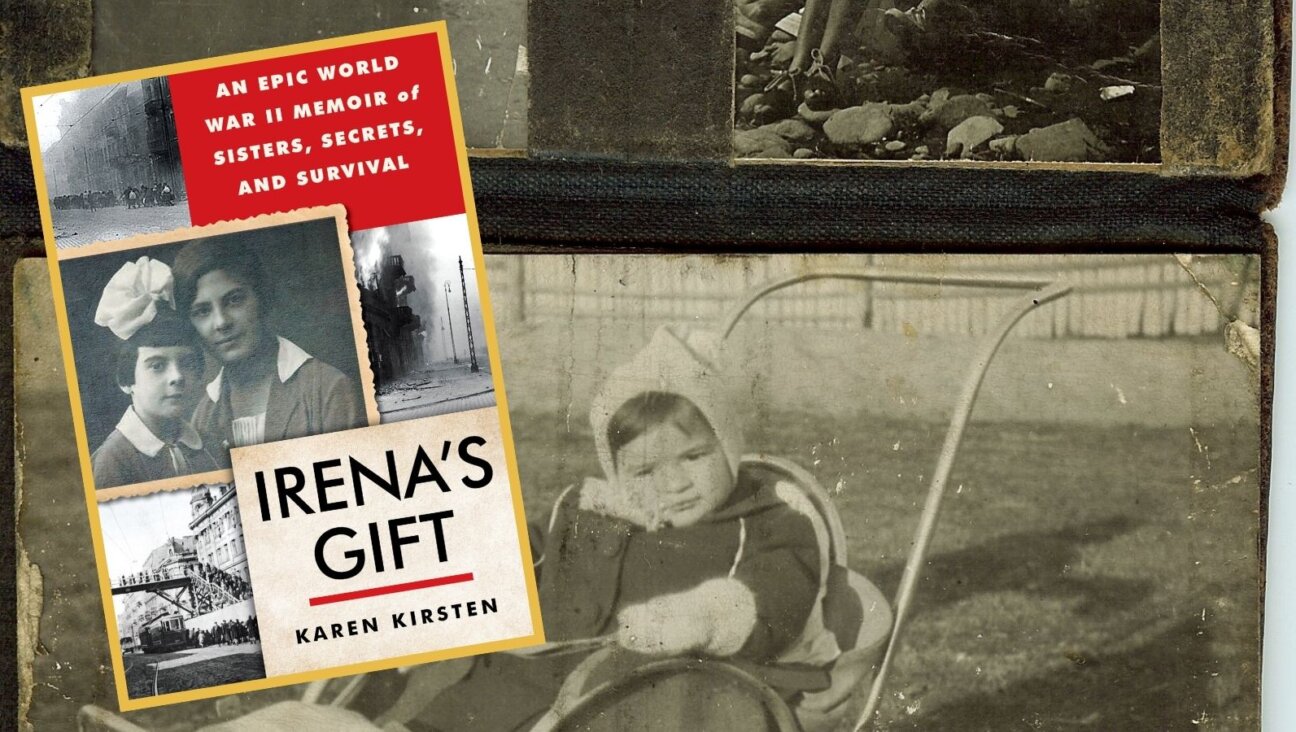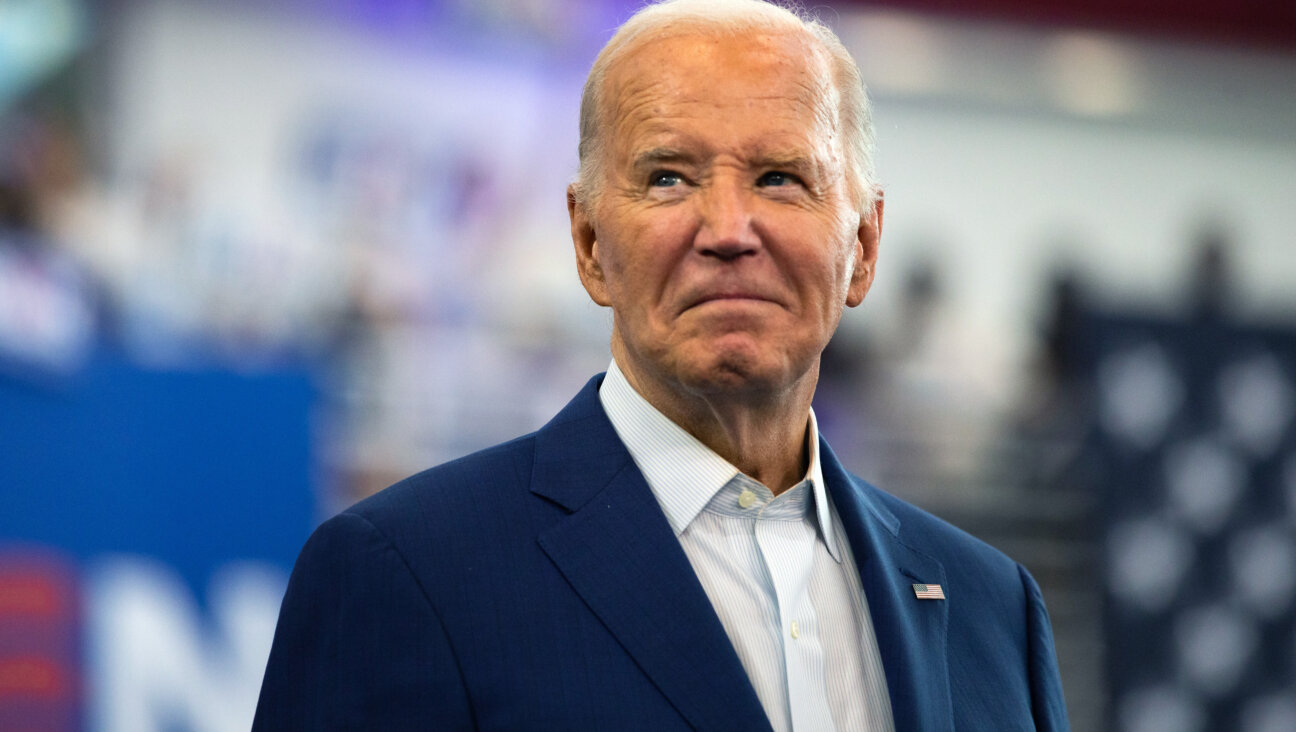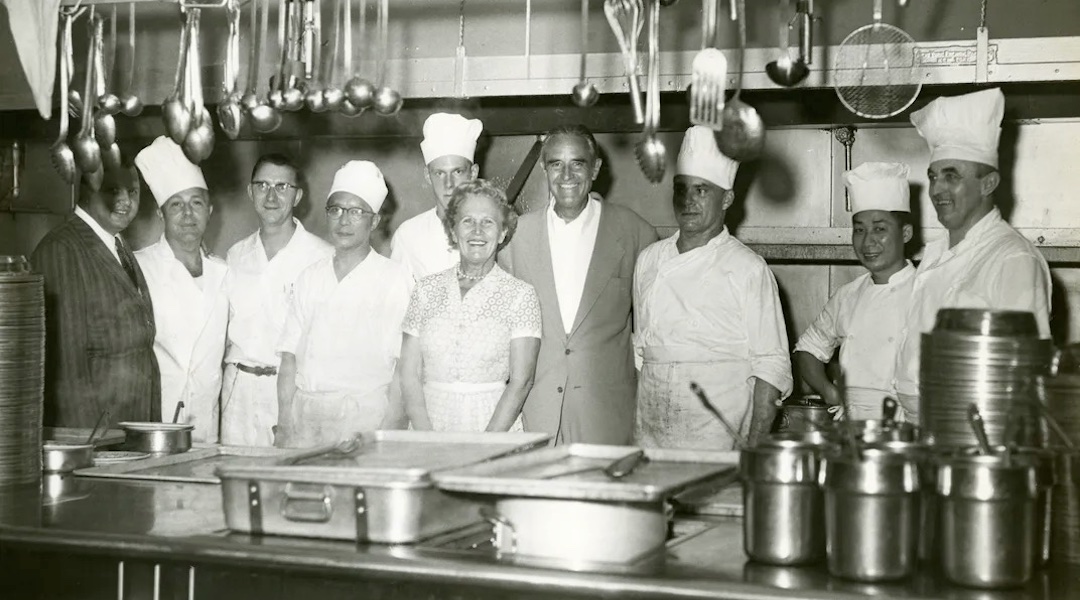In a gripping documentary, a synagogue welcomes the stranger by taking in a migrant family
‘All We Carry’ tells the story of Honduran refugees and the Jewish community who sponsored them

Magdiel and his daughter Shelsea in All We Carry. Courtesy of All We Carry.
The migrants call the train “The Beast.” They sleep on its back, exposed to the elements. Someone fell off it once — he was split in two.
The massive cargo train, churning toward Mexico and the U.S. border, was part of the dangerous crossing made by thousands of people in what became known as the 2018 migrant caravan, ab event that prompted xenophobic tirades from then-president Donald Trump. All We Carry, about a young Honduran family and the Seattle synagogue that sponsored them, opens on scenes of the train and the throngs of people making the exodus toward a better life. But first, they have to wait.
Cady Voge’s documentary, showing this weekend at the Milwaukee Film Festival and next month in Oakland, follows Magdiel, Mirna and their toddler Joshua, who flee Honduras following the murder of some of their family members by narcotraffickers. Mirna and Joshua are able to make the journey on a bus, but Magdiel rides The Beast and later must wait months at a detention center before reuniting with his wife and child. At the facility, Magdiel is dressed, and treated, like a prisoner.
But the family, unlike so many like them, were not turned away when they sought asylum. In Seattle they were sponsored by Kol HaNeshamah, a progressive congregation. Two members lend them a large house. The congregants are moved by their own histories. One, Eddie, speaks of her Holocaust survivor father, and recalls the immigration policy that kept millions of Jews from coming to the U.S. before, during and after World War II.
Magdiel and Mirna are evangelical Christians who hadn’t encountered Jews before arriving in Seattle, but Magdiel notes how his new friends haven’t forgotten where they came from and the persecution they faced.
“They’ve held onto that memory,” Magdiel says. As the film continues, Mirna agonizes over how to keep the memory of Honduras alive for Joshua, and later their daughter Shelsea.
Kol HaNeshamah rallies behind the family, sharing holidays and meals and providing child care. Learning that Magdiel can’t work while he awaits his hearing, two years from when they arrived seeking aid, they set up a fund for when he does landscaping work and odd jobs in the community.
Voge’s film is at its most gutting in its small intimacies. Driving Joshua to school one day, Magdiel passes a cemetery and tries to explain to Joshua that his grandfather is dead.
Magdiel is still struggling with the loss of his father, but must relive the experience to remain in the country. We don’t hear him describe it to the court; instead Voge lets us hear the difficult questions — “Do you know what type of torture your father endured?” “Would it be accurate to say that his death was very violent?” “Did it take a few months to find the body?” — highlighting the callousness of the process.
As a portrait of a family, Voge’s film is a jarring reminder of the need for a more humane system. It does miss an opportunity to stress a larger parallel between the family and its new community.
Press notes point out that Magdiel and Mirna arrived just a month before the shooting at the Tree of Life Synagogue, but that tragedy is never mentioned. It’s an odd omission, as the shooter, Robert Bowers, targeted the shul for holding a HIAS Shabbat and for his belief that Jews were behind the migrant caravan.
But not every connection needs to be spelled out. It’s perhaps enough to remember the imperative to welcome the stranger, for, once, not too long ago, we all were strangers too.
A previous version of this article misspelled the directors last name. It is “Voge” not “Vogue.”
A message from our Publisher & CEO Rachel Fishman Feddersen

I hope you appreciated this article. Before you go, I’d like to ask you to please support the Forward’s award-winning, nonprofit journalism so that we can be prepared for whatever news 2025 brings.
At a time when other newsrooms are closing or cutting back, the Forward has removed its paywall and invested additional resources to report on the ground from Israel and around the U.S. on the impact of the war, rising antisemitism and polarized discourse.
Readers like you make it all possible. Support our work by becoming a Forward Member and connect with our journalism and your community.
— Rachel Fishman Feddersen, Publisher and CEO






























